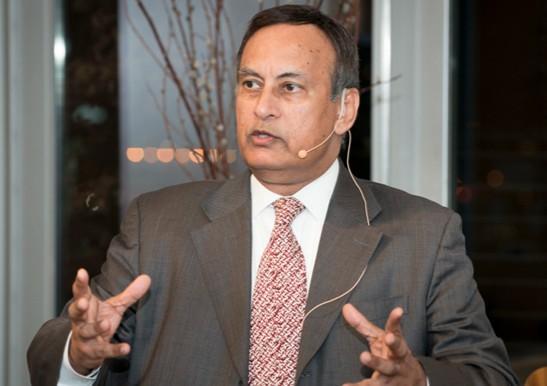
Title: Ex-Pak Envoy Questions Own Govt, Says ‘Why Do We Need LeT, JeM When We Have Armed Forces?’
The recent terror attack in Pahalgam, India, has brought the two nations to the brink of war. In an alarming statement, Husain Haqqani, the former Pakistani Ambassador to the United States, has questioned the presence of terrorist groups in Pakistan, particularly Lashkar-e-Taiba (LeT) and Jaish-e-Mohammed (JeM). In an interview, he expressed his concerns over the growing tensions between India and Pakistan and urged the government to shut down Jihadi groups to avoid any future conflicts.
As tensions between India and Pakistan continue to soar, Haqqani’s statement has sent shockwaves across the region. The former envoy’s words have sparked a heated debate about Pakistan’s role in supporting terrorist groups and the impact it has on regional security.
Haqqani, who served as Pakistan’s ambassador to the United States from 2008 to 2011, is no stranger to controversy. His tenure as ambassador was marked by diplomatic disputes with the US over Pakistan’s alleged support for terrorist groups. However, his recent statement takes a more nuanced approach, questioning the need for these groups in Pakistan.
“Why do we need LeT, Jaish, and Sipah-e-Sahaba when we have an armed forces?” Haqqani asked. “With well-equipped armed forces, why do we need Difa-e-Watan Council?” He added, “Pahalgam terror attack led India and Pakistan to the brink of total war. To avoid that in future, it’s important to shut down Jihadi groups.”
Haqqani’s statement is significant because it comes from someone who has deep knowledge of Pakistan’s foreign policy and its relationships with neighboring countries. As a former diplomat, Haqqani has had firsthand experience dealing with the complexities of regional politics and the challenges of balancing national interests with international obligations.
Haqqani’s concerns about the presence of terrorist groups in Pakistan are not new. For years, there have been allegations that Pakistan’s military and intelligence agencies have supported these groups as a means of exerting influence in the region. However, the recent Pahalgam attack has brought these concerns to the forefront, highlighting the need for urgent action to address the issue.
The Pahalgam attack, which killed 10 people and injured several others, has been attributed to JeM, a terrorist group blamed for numerous attacks in India. The attack has sparked widespread outrage in India, with many calling for stronger action against Pakistan to prevent such incidents in the future.
Haqqani’s statement has been met with both praise and criticism. Some have hailed his words as a bold move, calling for greater transparency and accountability from Pakistan’s government. Others have criticized him for speaking out against the government, citing concerns over national security and the potential for destabilization.
Despite the controversy, Haqqani’s statement has sparked a much-needed debate about Pakistan’s role in supporting terrorist groups. The country’s government has long denied any involvement in supporting these groups, but Haqqani’s statement has raised questions about the extent of its involvement.
In recent years, Pakistan has made significant efforts to crack down on terrorist groups and dismantle their networks. However, many have questioned the effectiveness of these efforts, citing the continued presence of these groups in the country.
Haqqani’s statement has also highlighted the need for greater cooperation between India and Pakistan to address the issue of terrorism. The two countries have a long history of conflict, with many disputes over issues such as Kashmir and water rights. However, Haqqani’s words have emphasized the need for greater cooperation and dialogue to address the shared threat of terrorism.
As tensions between India and Pakistan continue to rise, Haqqani’s statement serves as a reminder of the importance of addressing the root causes of terrorism. By questioning the need for terrorist groups in Pakistan, Haqqani has sparked a much-needed debate about the country’s role in supporting these groups and the impact it has on regional security.
In conclusion, Haqqani’s statement is a timely reminder of the need for greater transparency and accountability from Pakistan’s government. The country must take urgent action to address the presence of terrorist groups and dismantle their networks. Haqqani’s words have sparked a much-needed debate about the issue, and it is up to the government to take concrete steps to address the concerns raised by the former envoy.



